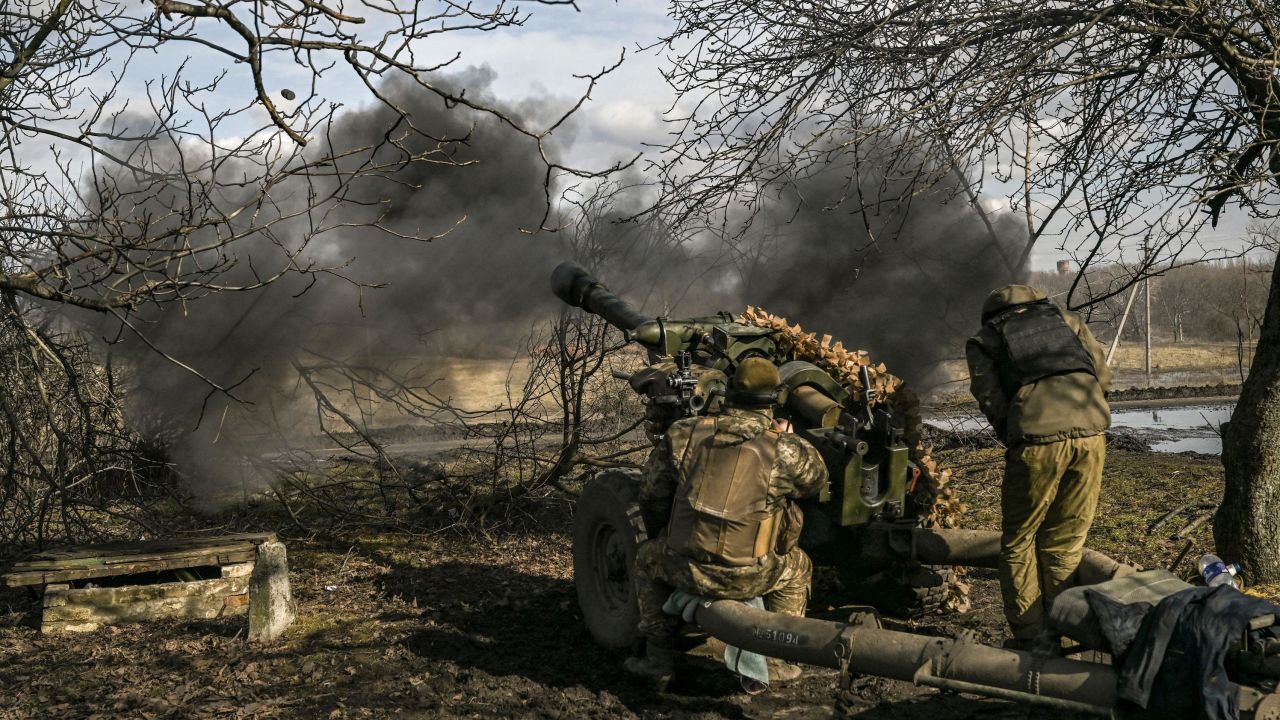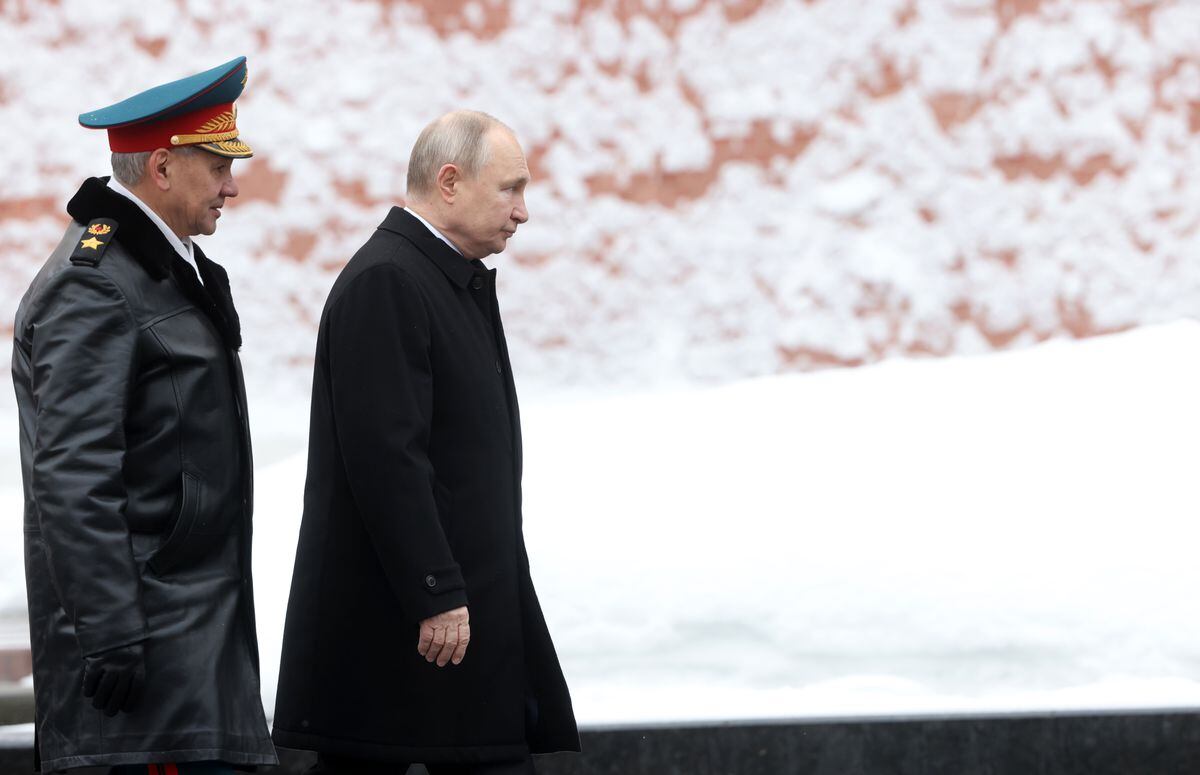What happens in Bakhmut?
CNN explains it 3:36
(CNN) --
For the first time in eight months, the Russians are about to take a Ukrainian city, even if it is a small town already abandoned by more than 90% of its pre-war population.
Ukrainian defenses in and around the eastern town of BaKHmut are being pressured by a combination of intense artillery, mortar fire and airstrikes, as well as a significant commitment of ground forces, both Russian regulars and military company fighters. Private Wagner.
If and when Bakhmut falls, it can be tempting to wonder if the Russian forces are getting better, learning from the catalog of mistakes they have made so far in this conflict and finally exploiting their superior numbers and firepower.
Latest live news from Russia's war in Ukraine
The answer: probably not.
Mick Ryan, a former Australian general and author of the WarInTheFuture newsletter, states that "the Ukrainian Armed Forces may decide that they have achieved all they can by staying in their defensive emplacements around Bakhmut, and that conserving forces for battles is more important than follow".
advertising
But a Ukrainian withdrawal does not amount to disaster if carried out in an orderly fashion.
"It should be treated as a routine tactic and not a harbinger of disaster," says Ryan.
The Ukrainians have used Bakhmut to inflict massive losses on the attacking force: by some estimates, by a ratio of 7:1.
There comes a time when it is wiser to withdraw than to suffer ever-increasing losses and the moral blow of seeing hundreds and perhaps thousands of surrounded Ukrainian soldiers surrender.
For Ukrainians, judging that moment is critical.
But for the Russians, taking Bakhmut would not alter the fundamental shortcomings of their campaign.
barrage fire
The Battle of Bakhmut suggests to some degree that the Russians are changing the way they wage war, or at least trying to.
They continue to rely on massive barrages of indirect fire (artillery and shells, rockets, aerial bombardments) to pulverize defensive positions.
This was the tactic in the cities of Mariupol, Severodonetsk and Lysychansk last year.
In short: leave nothing standing that can be defended.
Recalling the words of the Stalin-era marshal Georgy Zhukov: "The longer the battle lasts, the more force we will have to use."
But such a persistent fire demands an efficient logistics chain.
The Russian forces continue to have difficulties in this regard.
In Mariupol and other cities taken last year, men were advancing street by street.
But these were rarely regular Russian soldiers, rather Chechen units, militias from the self-proclaimed Luhansk and Donetsk Republics, and a small number of Wagner agents.
The Russians have caused a massive fire in Bakhmut and have destroyed a large part of the city, from which 90% of the population has fled.
And they frequently moved into territories already abandoned.
The campaign to take Soledar in January and now nearby Bakhmut has been based on the same playbook, but with one notable and gruesome exception: waves of infantry recruited by Yevgeny Prigozhin's Wagner Group sent to flood the Ukrainian defences.
Prigozhin has acted unilaterally to embarrass the Russian military and burnish his own reputation.
Wagner Group fighters taken prisoner by the Ukrainians told CNN they had little coordination with regular Russian forces, except for artillery support, as they were sent by the hundreds and thousands to the Ukrainian firing line.
Prigozhin bragged last week that if Wagner abandoned Bakhmut, the front would fall.
There are also indications that the Russians have used more infantry in their unsuccessful efforts to advance towards Vuhledar, again with heavy losses.
It's as if the Russians are bolting down instead of integrating a new dimension to their order of battle: overwhelming the Ukrainian defenses with wave after wave of cannon fodder, accepting casualty rates of up to 80% in the process.
Such a devastating casualty rate is unsustainable on front lines that stretch thousands of miles.
For some analysts, such losses mean that "the conditions are already in place for a full-scale Russian military mutiny."
Why is Bakhmut important to Putin if his strategic value is limited?
Bakhmut has become an obsession for the Russians in the absence of progress on other fronts, far beyond any strategic logic.
The Russian Defense Ministry, concerned that Prigozhin was taking the flower bouquets while he was taking the bricks, began sending more forces to the area.
But the concentration at Bakhmut may have come at a cost to Russian operations elsewhere.
More than a triumph for the Russian generalship, the hard-fought campaign to take Bakhmut, first attacked some 10 months ago, illustrates the desperate need for a "victory"—any victory—regardless of the battlefield in general.
That may explain why Ukrainian forces have been ordered to hold the line.
Volodymyr Nazarenko, deputy commander of the Ukrainian National Guard, stated last week that the Russians "do not take into account their losses when trying to take the city by storm. The task of our forces in Bakhmut is to inflict the greatest possible number of losses on the enemy. Every meter of Ukrainian land costs the enemy hundreds of lives."
"Leadership attrition on the battlefield"
Russia's mobilization last fall, with the conscription of some 300,000 uniformed men, provided a reserve of infantrymen and helped rebuild units that had suffered heavy losses.
At the same time, Prigozhin was searching Russian prisons and turning his Wagner forces into the shock troops of the campaign.
Ukrainian commanders knew that they would soon face another attack.
But according to West Point's Modern War Institute, "Russia has been unable to demonstrate that it can effectively integrate new forces into damaged formations or build cohesive teams from ad hoc groupings of scattered unit remnants."
Russia is now "attempting to fight a protracted and costly conflict with a team of pick-up replacements while suffering severe leadership attrition on the battlefield," the Institute assesses.
But there are more systemic problems.
The Ukrainian conflict has seen Russian forces gradually try to move away from reliance on Battalion Tactical Groups (BTGs), combined arms formations that have proven ill-equipped for the Ukrainian conflict.
His Achilles heel: the lack of infantry and reconnaissance.
The lack of every one of them in the BTGs in the advance towards Kyiv a year ago was one of the reasons why the campaign faltered and failed.
The Russian forces were vulnerable to ambushes.
That vulnerability has been compounded by an entrenched culture that values obedience over initiative.
In the words of a recent study by the European Council on Foreign Relations, "The inadequate training and incompetence of Russian military personnel—combined with the strict hierarchies in which they operated, which left officers unable to act on their own initiative—meant that they were unable to rapidly coordinate advances deep into enemy territory".
As Rob Johnson wrote in the US Army War College Quarterly, "Basic combat skills (such as being alert, managing logistics, and moving tactically across terrain to avoid casualties) were lacking, and the evidence suggests a significant lack of discipline."
These deficiencies are not cured overnight.
And reorganizing formations and structures in the middle of a war is not ideal, even less when there is a lack of competent middle managers.
The loss of colonels and lieutenant colonels adds to the Russian problems.
Russia "has responded to battlefield fighting in Ukraine by resorting to its previous model of deploying a large conscript force," the Modern War Institute states.
"In a way, this reflects the tension between Russia's pursuit of a technologically sophisticated form of warfare and its longstanding penchant for simple, robust mass."
That robust mass has certainly inflicted heavy losses on Ukrainian units in recent months, and some Ukrainian commanders have questioned the wisdom of holding on to both Soledar and Bakhmut.
But even if the Russian flag is raised over the ruins of Bakhmut, a Pyrrhic victory may turn out.
As Mick Ryan writes: "If the Russians capture Bakhmut, they will be seizing rubble. This is a city of minimal strategic importance, with almost no infrastructure left to sustain an occupying force. That the Russians have invested so much in their capture says a lot about their poor strategy in this war".
In addition, they have depleted men and materiel that could have been badly needed when the Ukrainians launch counter-offensives in the coming months.
war in ukraine















